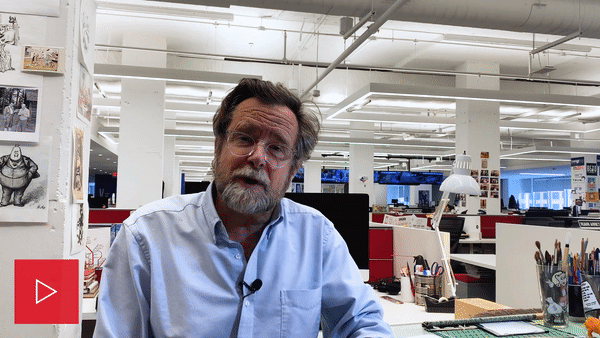| | | | | |  | | By Nahal Toosi | With help from Renuka Rayasam
| 
Prime Minister Abiy Ahmed salutes members of the Ethiopian Military as they march during an inaugural celebration after Ahmed was sworn in for a second five year term in October in Addis Ababa. | Jemal Countess/Getty Images | IF IT ISN'T HERE ALREADY — President Joe Biden is clearly not a fan of using U.S. military force unless absolutely necessary. (See: Afghanistan.) His administration's preference is a "diplomacy first" approach to foreign policy. This might seem like a no-brainer. Of course you'd want to try talking before shooting. Plus, there's no guarantee that shooting — meaning, using the U.S. military — will bring about a positive solution anyway. In fact, it could make things much worse. But diplomacy doesn't always work, even when you bundle it with everything from economic sanctions to visa bans to trade penalties. Case in point: Ethiopia. This week marks a year since a vicious conflict erupted in that country, pitting federal forces against rebels from the Tigray region. The death toll is believed to be in the thousands, while hundreds of thousands face starvation. War crimes? Quite likely. The Biden administration has taken a step-by-step approach to the conflict , including repeatedly dispatching a special envoy to cajole the warring parties while authorizing sanctions, imposing visa bans and more. How is that going? The country's capital, Addis Ababa, is now in danger, and the United States is slashing its embassy staff while urging Americans to leave the country. That sounds depressingly familiar. When I asked a senior State Department official why nothing seems to be working, the official seemed exasperated with me. His answer came down to this: The leaders in the conflict are too stubborn to listen. That includes Nobel Peace Prize-winning (yes, you read that right) Ethiopian Prime Minister Abiy Ahmed. The official's exact words: "The problem is that you have multiple objects that heretofore have proven largely unmovable," he said. "It remains to be seen whether the shifting dynamic will cause at least one of those objects to show a little more flexibility." So yes, maybe after the wars in Afghanistan and Iraq, it makes a lot of sense to insist on a diplomacy-first U.S. foreign policy. But it is certainly no guarantee that you will achieve your goals. All is not lost in Ethiopia. Pressure from the United Nations and other African countries, and maybe even sheer exhaustion, could over time help bring the conflict down to a simmer if not extinguish it. Or maybe one of the parties will win on the battlefield. For now, though, it appears the best U.S. diplomacy can do is find ways to help the suffering civilians caught in the conflict while doing its best to nudge seemingly unmovable objects. Welcome to POLITICO Nightly. Reach out with news, tips and ideas at nightly@politico.com. Or contact tonight's author at ntoosi@politico.com, or on Twitter at @nahaltoosi.
| | | | STEP INSIDE THE WEST WING: What's really happening in West Wing offices? Find out who's up, who's down, and who really has the president's ear in our West Wing Playbook newsletter, the insider's guide to the Biden White House and Cabinet. For buzzy nuggets and details that you won't find anywhere else, subscribe today. | | | | | | | | AS THE VOTES TURN — After a multi-day whipping bonanza, Speaker Nancy Pelosi and her leadership team dramatically altered course today to satisfy a handful of recalcitrant moderates who refused to back Biden's $1.75 trillion social spending bill. Instead, Democrats are set to again delay a vote on that party-line measure and turn their sights to just the $550 billion Senate-passed infrastructure bill — bending to the demands of their most vocal centrists in a last-ditch attempt to deliver at least one legislative win for Biden. "Today we have an opportunity to proceed down a path to advance a very historic and transformative agenda," Pelosi told reporters late this afternoon. Democrats do still plan to advance their broader $1.75 trillion climate and social safety net bill, set for passage without GOP votes, but it would only be a procedural move — some momentum, but not enough for many progressives. Congressional Progressive Caucus Chair Rep. Pramila Jayapal (D-Wash.) issued a firm statement on Friday afternoon rejecting the move to vote on infrastructure without the broader spending plan. "If our six colleagues still want to wait" to vote on a party-line social spending bill in order to give time for a budget score, Jayapal said, "we would agree to give them that time — after which point we can vote on both bills together." The maneuver, pushed by senior members of the Congressional Black Caucus, is a huge risk for Democratic leaders that reverses a promise to their left wing to move both of Biden's priorities in tandem. While that move is certain to cost them at least a handful of liberal votes for the bipartisan infrastructure bill, senior Democrats believe they can make up most of those from the GOP side of the aisle.
| | | | BECOME A GLOBAL INSIDER: The world is more connected than ever. It has never been more essential to identify, unpack and analyze important news, trends and decisions shaping our future — and we've got you covered! Every Monday, Wednesday and Friday, Global Insider author Ryan Heath navigates the global news maze and connects you to power players and events changing our world. Don't miss out on this influential global community. Subscribe now. | | | | | | | | STOCK UP THE MEDICINE CABINET — Nightly's Renuka Rayasam emails: Until October, our family had largely steered clear of crowded indoor gatherings — our two toddlers aren't vaccinated against Covid. But my husband, full of childhood nostalgia, couldn't resist an invitation we got to a kids' birthday party at Peter Piper Pizza, a cavernous space, teeming with other families celebrating fall birthdays with skeeball. Two days later, our eldest son started sneezing and coughing and was exhausted. I was next. Then the illness sidelined my mother-in-law, who spent a day watching my son while he was at home from daycare. At the end of the week, when my son still hadn't recovered, we took him to the pediatrician who examined and tested him. Turns out it was just a routine cold. Get used to this, said Monica Gandhi, an infectious disease specialist at the University of California, San Francisco. After a year and a half of masking and hand sanitizer and social distancing, our immune systems have largely been shielded from pathogens that we commonly encounter in our lives. But now, as Covid fatigue sets in, the holidays approach, indoor gatherings rise and kids vaccinated against Covid start to venture out in the world, we are going to get sick — a lot. "People's immune systems have been detrained," Gandhi said. Pathogens are hungry for hosts. That means it could take a lot less virus to make us feel a lot more ill. The CDC is warning of a massive rebound of flu cases this winter, but as with Covid at least there is a flu vaccine. There are other viruses illnesses without vaccines that are spreading rapidly: rhinoviruses, adenoviruses, other coronaviruses that cause common colds, paramyxovirus, parainfluenza, croup and strep throat. On Monday, when I thought our family was in the clear, the kids — and my husband — started throwing up. We saw a version of this in the spring when people first started venturing out. Out of season colds and RSV cases surged in the United States. But things are set to get a lot worse this winter with even more people circulating indoors. Students at the University of Dayton have coined the term "Dayton Plague" for a non-Covid respiratory illness that's been making the rounds. Still, the return of routine pathogens isn't actually all bad. "For the average child, having a cold is a wonderful training ground for an immune system," said C. Buddy Creech, a pediatric infectious disease expert at Vanderbilt University. There is evidence that getting sick early in life can protect us against more severe illnesses in the future. Gandhi, who was part of the NIH's Human Microbiome Project, has been worried that our immune systems aren't seeing enough germs. "I've been trying to get my kids colds recently," she said. "I know the desperate need for immune diversity." Still this spike in formerly routine illnesses isn't without risk. Colds can lead to ear infections and pneumonia too, warns Creech. The other complication? The FDA is set to authorize molnupiravir, an oral antiviral, that is most effective when given early. But because respiratory viruses often share symptoms with Covid, more testing will be required to figure out whether a patient has a severe cold or mild Covid. "It's going to be a confusing winter," Gandhi said.
| | | | 
Alma Powell, widow of former Secretary of State Colin Powell, shakes hands with guests as she leads family and friends out of Washington National Cathedral following her husband's funeral service. | Chip Somodevilla/Getty Images | — Family, friends gather to honor Colin Powell: Friends, family and former colleagues gathered today at Washington National Cathedral to honor Colin L. Powell, the trailblazing soldier-diplomat who rose from humble Bronx beginnings to become the first Black chair of the Joint Chiefs of Staff and later served as the first Black secretary of state. The funeral drew dignitaries and friends from across a wide political and military spectrum. They included former presidents George W. Bush and Barack Obama, former Secretaries of State James Baker, Condoleezza Rice and Hillary Clinton, former Defense Secretary Robert Gates and the current chair of the Joint Chiefs, Army Gen. Mark Milley, as well as other service chiefs. — State Dept. names new coordinator on 'Havana Syndrome' cases: The State Department named a new coordinator today for its investigation into cases of so-called Havana Syndrome , responding to increased pressure from lawmakers to investigate and respond to hundreds of brain injuries reported by diplomats and intelligence officers. Secretary of State Antony Blinken appointed a high-ranking deputy, Jonathan Moore, to coordinate the department's task force on the cases. He replaces Pamela Spratlen, a retired diplomat temporarily called back into service by Blinken before leaving in September. She had faced criticism from some victims. — U.S. hiring rebounded in October, with 531,000 jobs added: America's employers stepped up their hiring in October, adding a solid 531,000 jobs, the most since July and a sign that the recovery from the pandemic recession may be overcoming a virus-induced slowdown. Today's report from the Labor Department also showed that the unemployment rate fell to 4.6 percent last month, from 4.8 percent in September. That is a comparatively low level but still well above the pre-pandemic jobless rate of 3.5 percent. — Florida begins recount in nearly tied contest for Alcee Hastings' former seat: Florida has formally ordered a machine recount in the Florida congressional race where the top two candidates in the crowded Democratic primary are separated by just three votes . Secretary of State Laurel Lee approved the recount for Florida's 20th congressional district late Thursday evening, and local election offices began running ballots through machines this morning. The winner of the Democratic primary is all-but guaranteed to win the safely Democratic seat that was held for years by Rep. Alcee Hastings, who died in spring. The special election will be held on Jan. 11. — Pentagon bearing down on Biden to shelve nuclear reforms: Biden's pledge to limit the role of nuclear weapons is facing growing resistance from Pentagon officials and their hawkish allies, who are arguing to keep the status quo in the face of Chinese and Russian arms buildups. Biden's top national security advisers will soon review the conditions under which the United States might resort to using nuclear weapons. Among the options are adopting a "no first use" policy, or declaring that the "sole purpose" of the arsenal is to deter a nuclear conflict and not use them in response to a conventional war or other strategic assault like a cyberattack.
| | | | | | | | | FOR THOSE TIRED OF OLD DISEASE WORRIES — France has put the entire country on high alert for bird flu, the French ministry of agriculture announced today. According to new measures, all French poultry farmers will have to keep their flock indoors. Other protective restrictions include the prohibition of any gathering together of live flocks, enhanced conditions for bird transport and daily clinical monitoring of all farms. Since the beginning of August, 130 cases or outbreaks of bird flu have been detected in wildlife or in farms in Europe, particularly in the North Sea and the Baltic Sea regions. "In this context and with the approach of the migratory period at risk, France is in a situation of strong vigilance," the ministry said in a statement. Last winter, French authorities were forced to cull some 700,000 ducks to stop the spread of the virus.
| | | ELECTION PIZZA HANGOVER — The seismic election results in Virginia and New Jersey were fertile ground for political satire and cartoons, and Matt Wuerker covers the latest in his Weekend Wrap , also featuring the ongoing congressional negotiations on Biden's agenda and the COP26 conference.
| 
| Did someone forward this email to you? Sign up here. | | | | Follow us on Twitter | | | | Follow us | | | | |
No comments:
Post a Comment